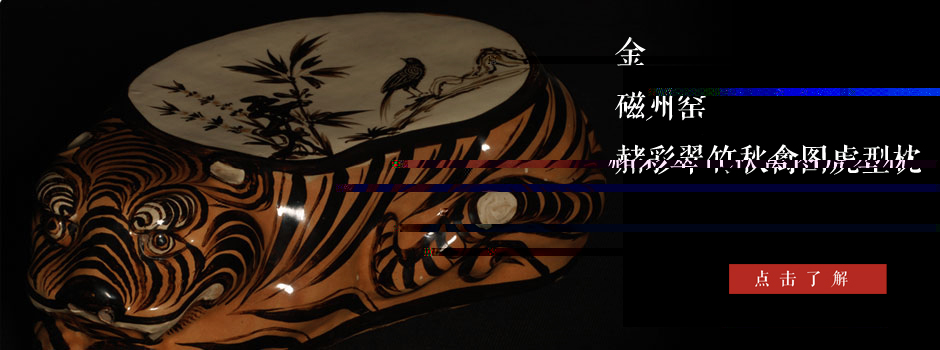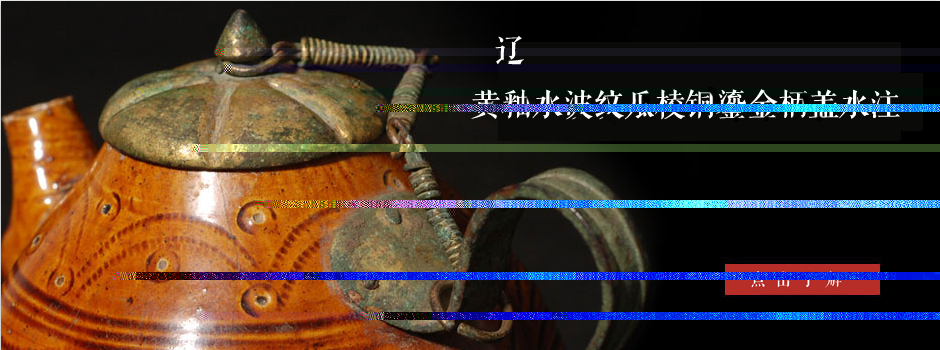- >> Company Profile
- >> President's Speech
- >> Brand Service
- >> Mission & Goals
- >> Value System
- >> Brand Construction
- >> Philosophy and Mode
Address: Room 614-616,China World Office 1, No.1 Jian Guo Men Wai Avenue, Beijing, P.R.C.
Tel:+86-10-65051177
Fax:+86-10-65058988
E-mail:soongs@zbkenuo.com
Home >> Show Items
Beige celadon porcelain earthen stove of official ware of Jiaotanxia in Southern Song Dynasty D:9cm
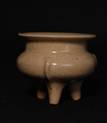 |
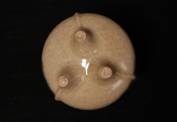 |
The earthen stove is board-edged, with short and straight neck and drum waist to be supported with tripod. The shape of stove is decent and primitive. Though the bronze earthen is used as the blueprint, it is emerged with the unique aesthetic favor of Song people. The straight-line board edge and neck design as well as the treatment of massy belly contrast the straight line with the curve line, which enables the ware shape to change in a more streak-oriented way and introduce the harmonious and interesting rhythm of being quiet and motive. From the stove belly to the feet, there are three ridged lines standing out, which are called “muscle bulges”. The prototype is the conformance line left when firing the bronze. Later, it is evolved into the decorative patterns in order to beautify such lines.
Official kilns of Southern Song Dynasty refer to the Xiuneisi official kilns constructed in Fenghuang Mountain, Hangzhou and other new official kilns additionally constructed adjacent to Jiaotanxia of Baguatian, Wugui Mountain after the Song Dynasty chose Lingan as its capital when the Southern Song Court was established. This is the continuity of Bianjing Official Kilns of the Northern Song Dynasty. According to Honest Fast to Remain Balanced with Brushes by Ye Zheng who was born in the Southern Song Dynasty, during the stable and peaceful years (1111-1117), the capital set its own kilns to fire wares, which were named Official Kiln. After crossing the river in the middle of prime period, Zhao Chengzhang was appointed to get his relatives promoted, which was called “Zhao Bureau”. In order to follow the system set by the deceased ancestor, the kilns were set up internally to fire celadon, which was called “internal kiln”. Once the mud was removed, it looked extremely delicate. With transparent and crystal glaze color, it was considered the treasure by the common people. Later, new kilns were constructed separately in Xiaotanxia, which were quite different from the previous ones”. This literature is considered the earliest record ever obtained regarding the history of official kilns in the Southern Song Dynasty. The research carried out by the scholars in the following dynasties was based on these data. The literature showed that the Southern Song Dynasty used to set up official kilns in Xiuneisi and Jiaotanxia to fire and make official wares, which was called official wares of the Southern Song Dynasty.
The shape of official wares of the Southern Song Dynasty is decent and simple, with massy glaze surface. This contributes to the thin-clay-body-but-thick-glaze process. The transparent glaze surface embodies the artistic style of Song people to admire the ancient. The color of glaze mainly consists of light green, extremely light bluish green, grayish green, yellowish green, etc. Being glazed for multiple times to have excellent milky turbidance and thick glaze layer, it aims to pursue the tactile sensation of uncut jade. The molding clay includes pitchy, grayish brown, grey and mahogany, but mainly the pitchy.
Earthen stoves are mostly of Longquan light glaze. The glaze color of this piece is quite rare. Japanese call it “beige celadon”. It has thick glaze in maroon, with large and small slices. The texture sheet can be sparse or dense, deeper or shallower. Large texture layer such as cracked ice pattern takes up the majority, which makes it look like rock candy and mica, layer downside layer to form many cracking of multiple angles and present the crystal white grain. Changpan Mountain Book Collections of Japan has collected beige celadon long-neck vase (Picture 1) of official wares of the Southern Song Dynasty and beige celadon (Picture 2). Among the porcelain sheets unearthed in the official kiln ruins at Jiaotanxia in the Southern Song Dynasty and collected by Tokyo National Museum and Changpan Mountain Book Collections, there are over ten beige celadon wares. The mold clay glaze of tow is extremely alike. For this reason, the Japanese scholars listed such beige celadon into the official wares of the Southern Song Dynasty.


Picture 1 Beige long-neck vase of official kilns of the Southern Song Dynasty collected in Changpan Mountain of Book Collections of Japan height 22.6cm
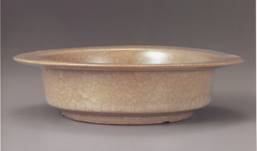

Picture 2 Beige celadon of official kilns of the Southern Song Dynasty Caliber 19.7cm Collected in Changpan Mountain Book Collection of Japan

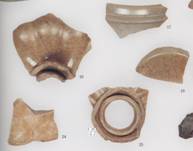
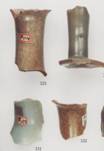

Picture 3 Fragments collected from the official kiln site of Jiaotanxia of the Southern Song Dynasty
Joint exhibition of Tokyo National Museum and Changpan Mountain Book Collections, etc
